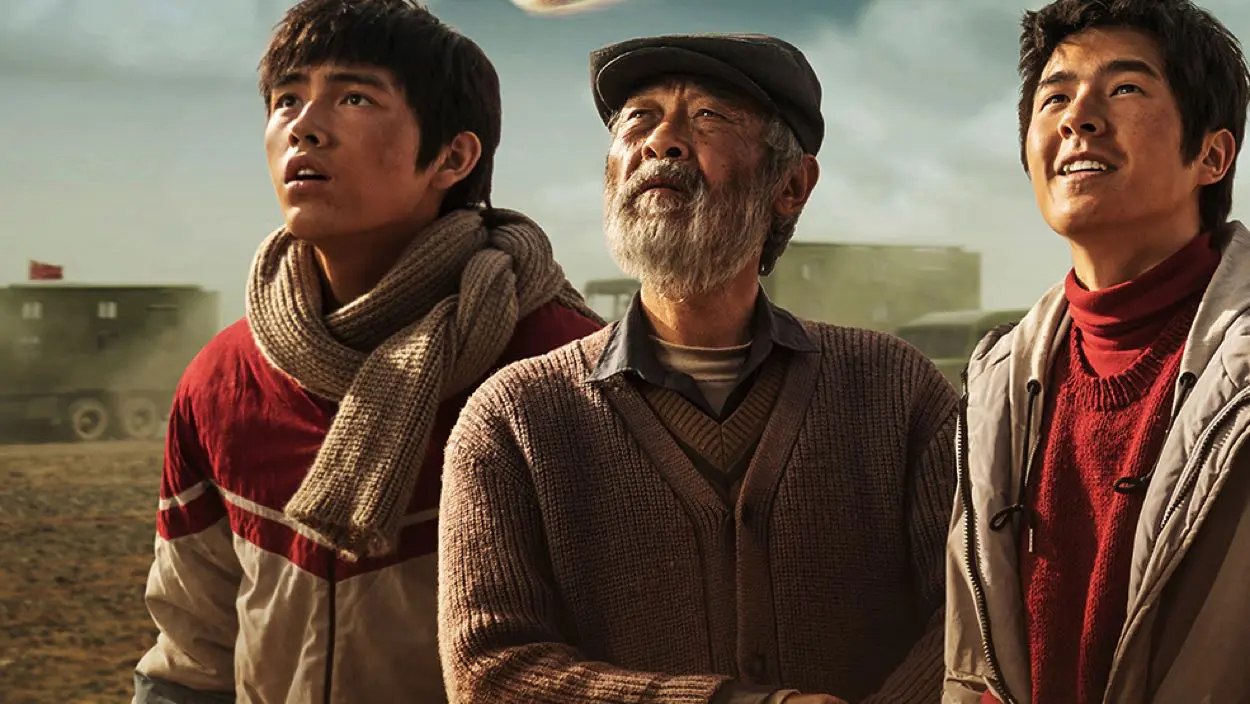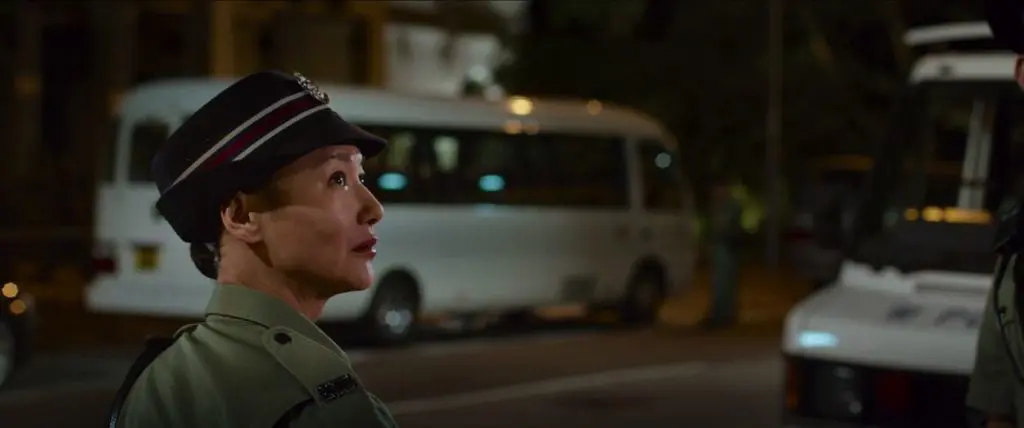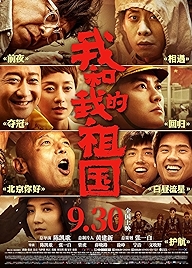Seven films by seven different Chinese directors comprise My People, My Country, a portmanteau film about key moments in the history of the People’s Republic, all overseen by Chen Kaige (who contributes one of the short films), director of My Beautiful Concubine. At 150 minutes running time that’s a 20-25 minute running time for each film.
When people talk about waving the flag they’re usually using the term metaphorically. It’s literal in My People, My Country – rarely can so many flags have been waved, so fervently, up front, in the background or off to the side. They’re a disparate bunch of films, as portmanteaus tend to be, but patriotism is in no short supply in any of them.
Quickly listing who did what. First up is The Eve, directed by Guan Hu, a light-hearted triumph-against-adversity, race-against-time number about the man who ensured that when Chairman Mao hit the button to raise the flag to proclaim the founding of the republic in 1949, the flag would rise up the pole without a hitch. It’s superbly made, beautifully lit, gorgeously shot, with big sets, celestial choirs singing on the soundtrack and suffused with the colour red, all of which works well as a counterpoint to a charming little story told in semi-comedic fashion. The second film, Passing By, directed by Zhang Yibai, is a touching story of a scientist working on China’s atomic bomb who is confronted on the bus by the heartbroken lover he abandoned three years earlier, it being a case of the top-secret job or the girl. Xu Zheng’s The Champion is a charming (and beautifully edited) tale of a cute kid missing a date with a girl he’s got a thing for so he can hold a TV aerial in place, thus allowing his neighbours to watch China play the US in women’s volleyball at the 1984 Olympics (no prizes for guessing who won). The fourth film, Going Home, (director: Xue Xialou) deals with the handover of Hong Kong from the British to the Chinese in 1997, as seen through the eyes of a watchmaker and his police-officer wife. Hello Beijing is directed by Ning Hao and is set in 2008, where the Beijing Olympics provide the backdrop to a story about an antsy taxi driver giving his ticket to the opening ceremony to an even antsier kid. Six, The Guiding Star, is directed by Chen himself, and follows two homeless and graceless young men, their rescue from poverty by Uncle Li, and their eventual presence at the site where China’s Shenzhou 11 spacecraft touches down. And finally, One for All follows a female air-force pilot on a journey into the skies and also towards a realisation that there are more ways to serve than just being number one all the time.
For my money the first three are the best of the bunch, though all seven films are lavishly made, have a reasonably unified look (I suspect Chen’s involvement here) and have something to offer, particularly if you’re interested in the Chinese mindset. Themes in common are selflessness and the joy of the group – raising the flag, detonating the bomb, watching the volleyball – though notably these group stories are all told in terms of their impact on individuals (the cute kid, the watchmaker and so on).
There’s also a progression of sorts, from more internally focused stories to ones with more international resonance but what unites them all is their cheerfulness and optimism. People, on the whole, are uncomplicated in My People, My Country. It’s the sort of film a tourist board would make – welcome to glorious Canada (cue shots of maple leaves and Mounties), or California (Arnold Schwarzenegger raises a glass of Napa Valley red).
There’s the odd moment of political dissonance, as in Going Home, about the handover of Hong Kong, which includes actual footage of the ceremony, including Prince Charles making a speech about change and continuity. As he launches into the bit about continuity – and is about to refer to the “one country, two systems” notion built into the Sino-British Joint Declaration, the film chooses this moment to cut away, for very obvious reasons.
Whether it’s for home consumption or export purposes isn’t clear, and nor do the obvious tilts at Hollywood in the Top Gun visuals of the final segment – slo-mo struts and aviator shades – make that any more obvious. But as the film marches from short to short, the message gradually shifts from the joys and rewards of selfless participation in group endeavour to a celebration of the might of Chinese achievement. That space program, all that military hardware, all those thousands of troops. The extent of China’s progress since 1949 is made evident and its global ambitions become manifest in a way that’s either thrilling or chilling, according to your world view.
© Steve Morrissey 2021


